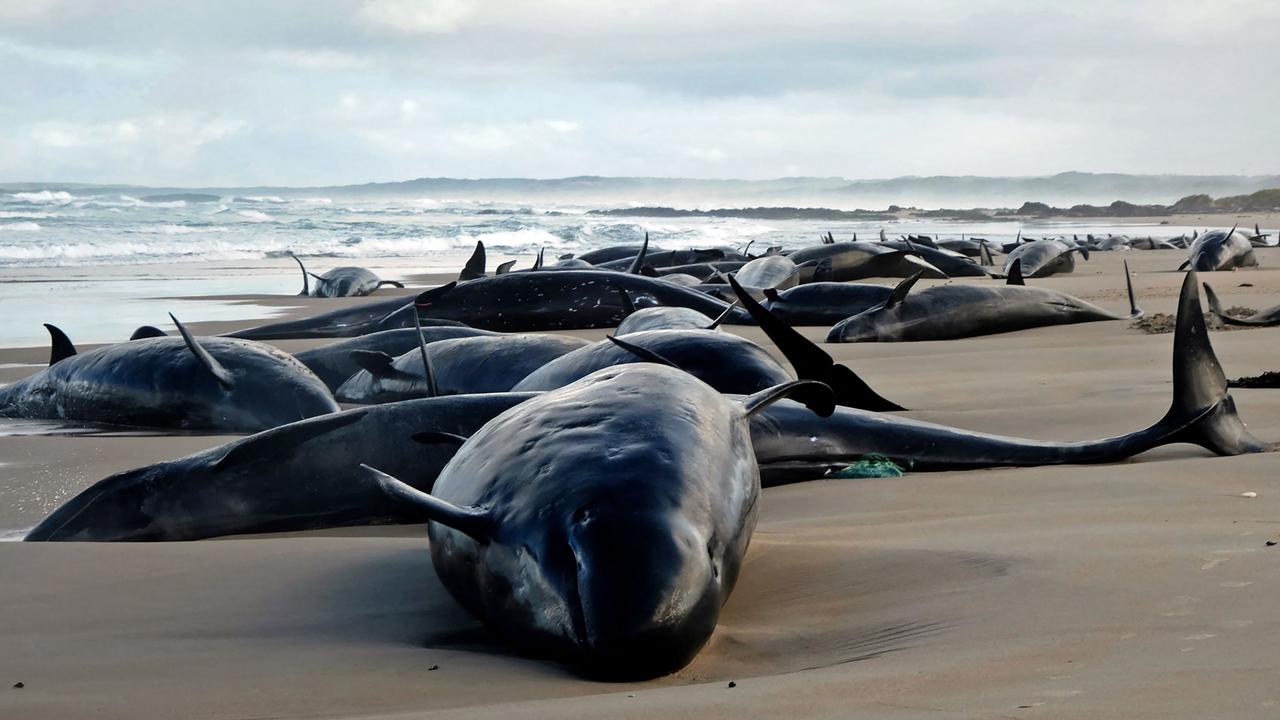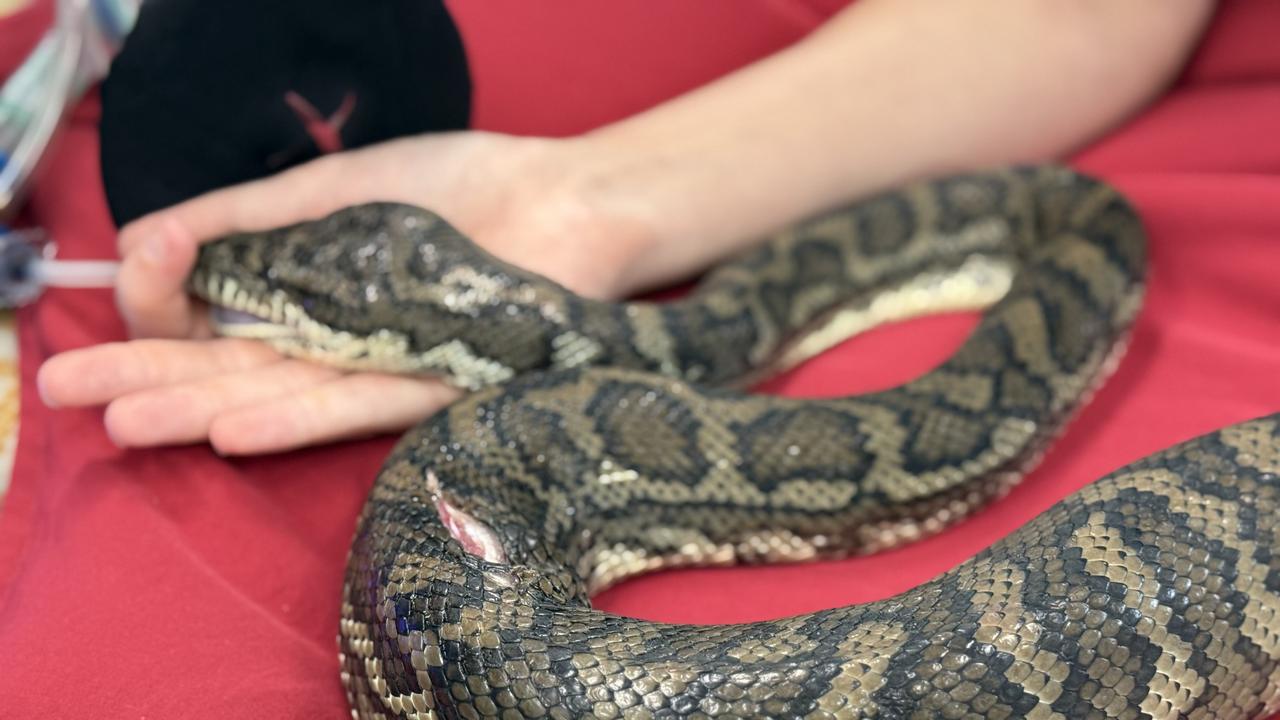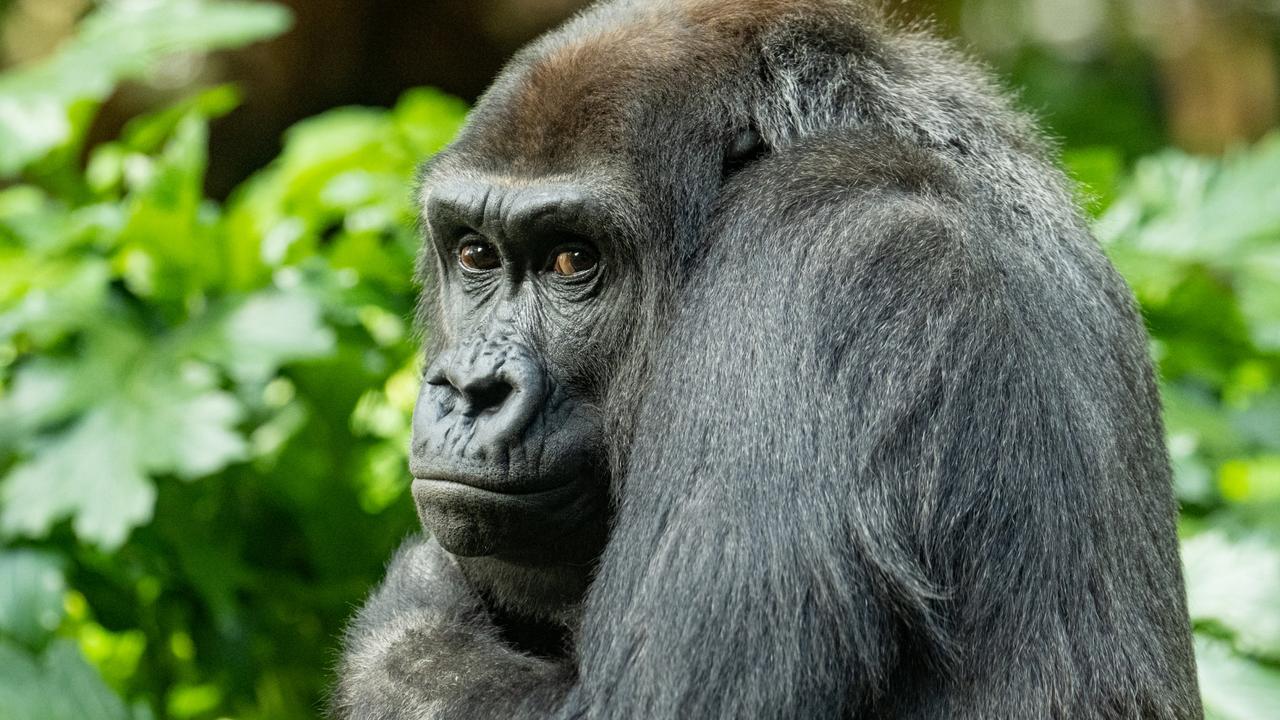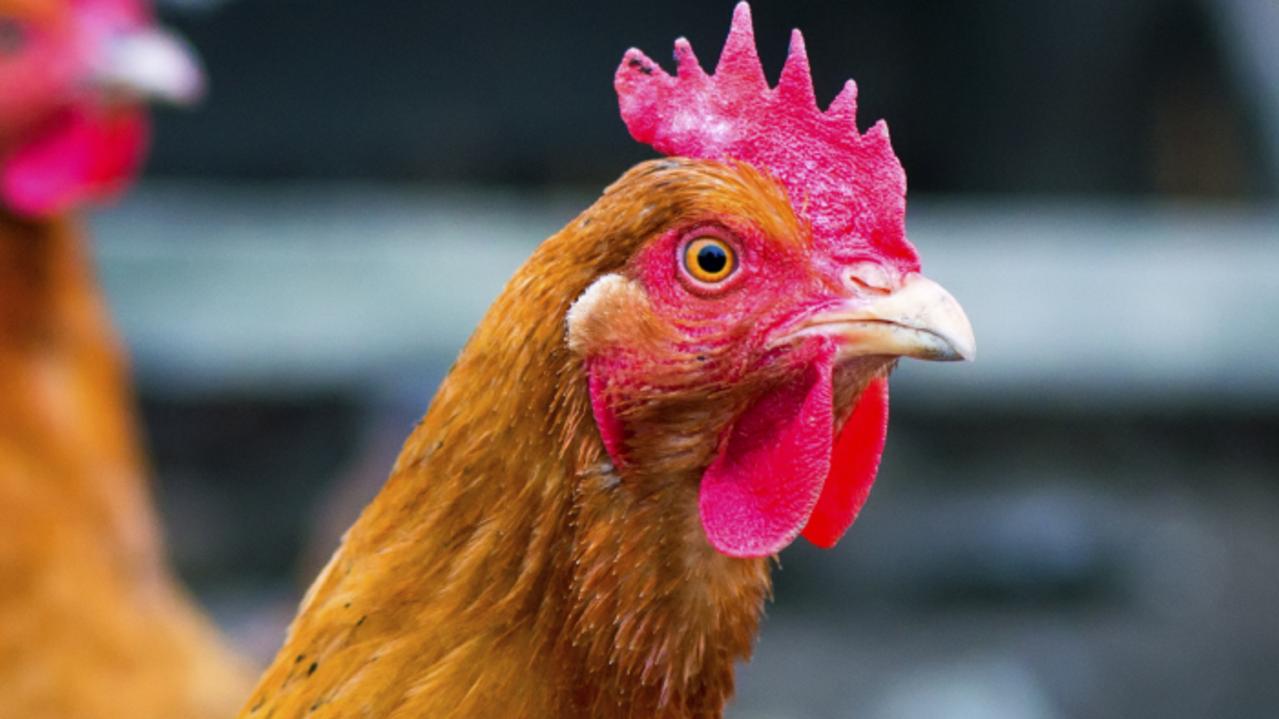Whales to be euthanised after more than 150 were left stranded on a remote Tasmanian beach
An Aussie state has had to enact a tragic “last resort” decision after more than 150 whales were stranded on a remote beach.
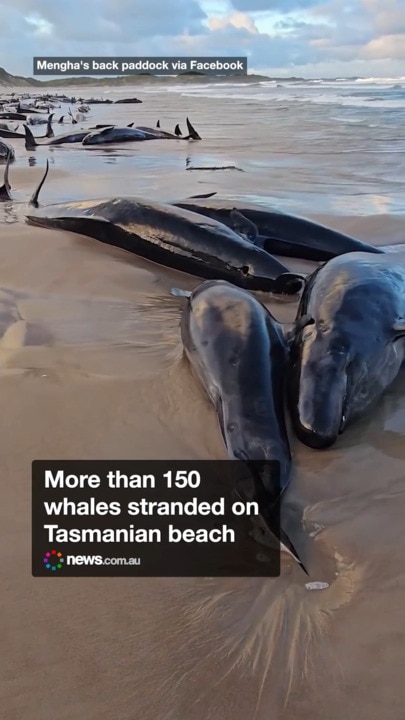
Animals
Don't miss out on the headlines from Animals. Followed categories will be added to My News.
A group of whales will be euthanised after a group of more than 150 were left stranded on a remote beach on Tasmania’s west coast in the state’s first “large mass stranding” of the animals in about 50 years.
Tasmania’s Department of Natural Resources and Environment (DNRE) said a group of 157 false killer whales were stranded on the beach on Wednesday morning.
Tasmania Parks and Wildlife Service (PWS) liaison officer Brendon Clark said the whales had been on the beach between 24 and 48 hours while speaking at a press conference on Wednesday.
While 90 were still alive as of Wednesday morning — with about 60 dead — Mr Clark said euthanasia was deemed necessary for the remaining whales following expert veterinarian advice and assessment.
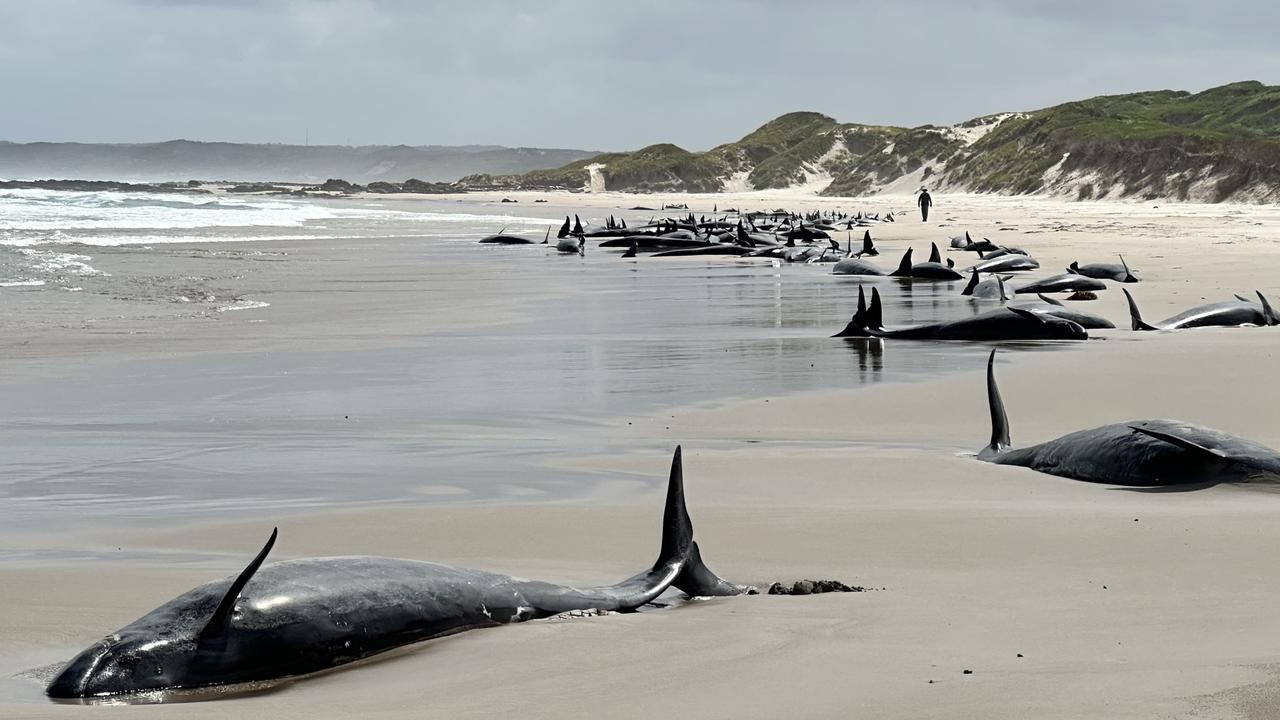
“The conditions that the team faced yesterday in attempts to refloat the whales proved very challenging and in fact dangerous to our staff in those prevailing conditions,” Mr Clark said on Thursday.
He said “euthanasia is always a last resort”.
“Euthanasia is conducted by licensed and professional trained firearm experts and with specialised ammunition under the guidance of wildlife veterinarians and a documented procedure,” he said.
“On behalf of the department we want to reiterate that these decisions are very difficult to make and can be quite emotional for the community and we totally understand that.
“It’s also emotionally demanding on our staff involved and we have our internal support networks to facilitate that.”
The euthanasia process began on Wednesday, with 27 animals “processed”.
There were 38 animals alive as of Thursday morning, with 25 of the whales having died overnight.
The euthanasia process was set to conclude on Thursday, however it remained unclear what would be done with the carcasses.
“We understand the sensitivities of the area and we continue to work with the local Aboriginal community in determining the best method for carcass disposal,” Mr Clark said.
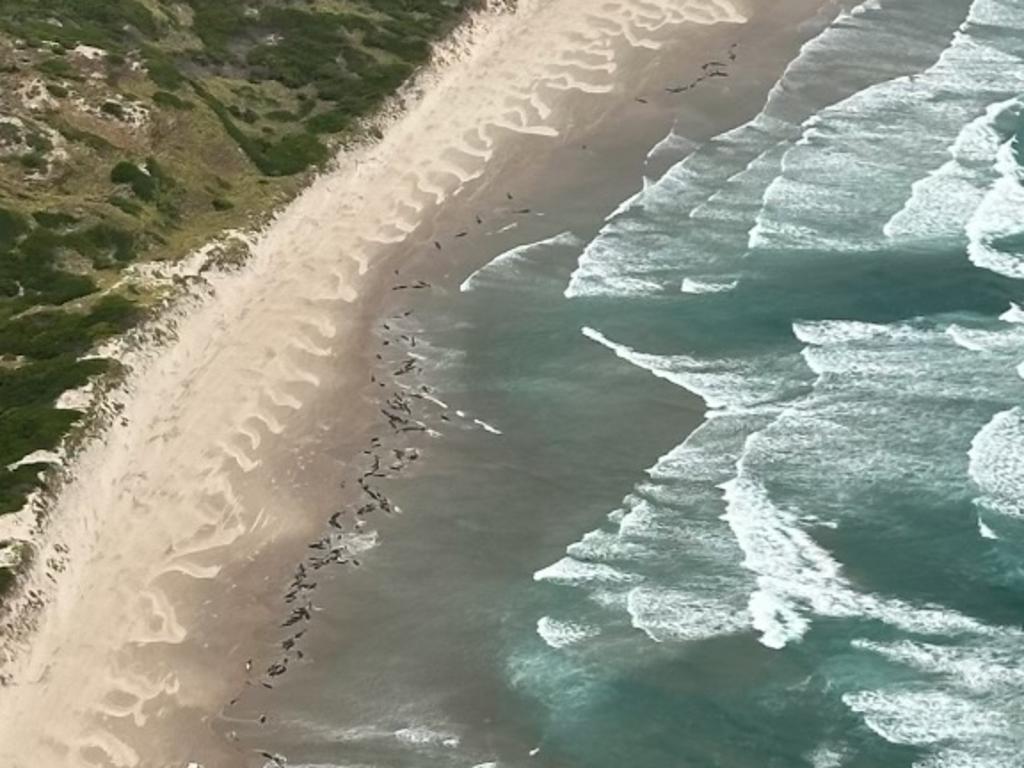
“As flagged yesterday it may be a case of the carcasses remaining in situ on site for the immediate term and certainly we’ll be addressing those issues throughout today and will be looking to conclude that carcass decision operation over the next couple of days.”
Post mortem investigations were slated to take place in a bid to determine what caused the whales to become stranded.
Mr Clark earlier said similar mass standings typically involved pilot whales, with this incident marking the state’s “first large mass stranding of these animals in around 50 years”.
“Some of them are suffering some effects of tidal surges, and whilst a number of them on the beach, there are also a number of rocky outcrops in those areas that are affecting the animals,” he said at a press conference on Wednesday.
An NRE team involving the marine conservation program and PWS were mobilised on Wednesday, with vets and marine biologists sent to the site.
“However initial assessments indicate that refloating the whales will be difficult due to the inaccessibility of the site, ocean conditions, and the challenges of getting specialised equipment to the remote area,” Mr Clarke said.
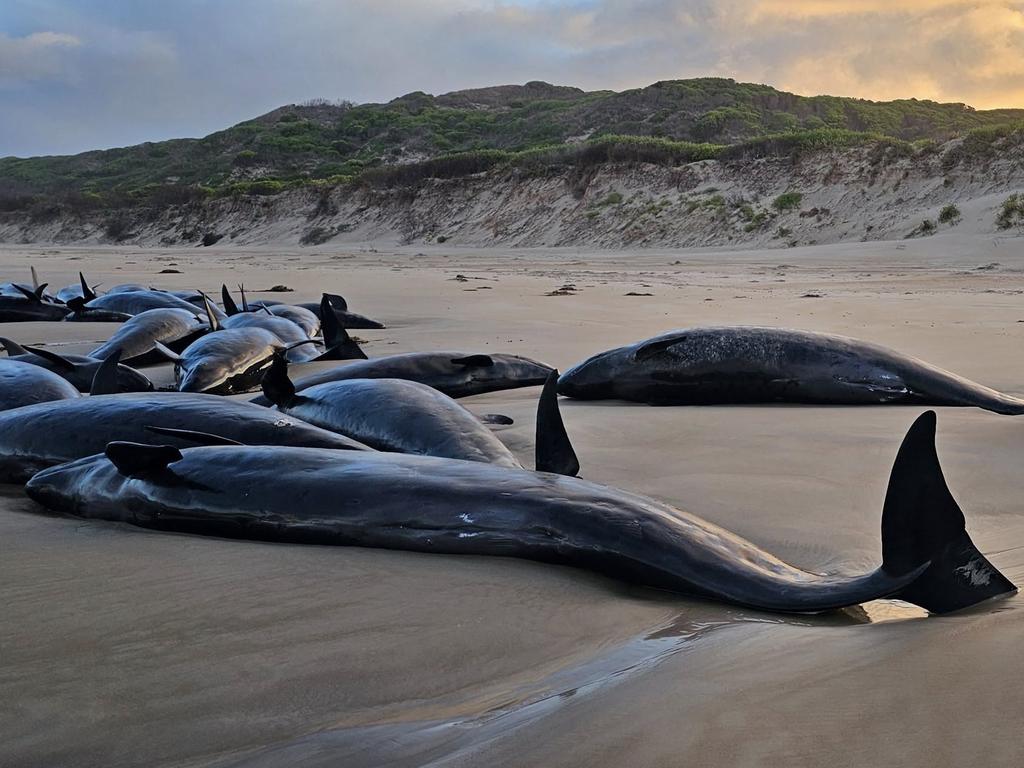
“While we’ve had good recent success at previous whale stranding events on the west coast at Macquarie Harbour and surrounds with refloating and rescuing whales it’s important to note that the environmental and the access challenges mean we are unlikely to be able to use those same rescue techniques.
“Animal welfare will be a priority during this response as well as the safety and wellbeing of departmental staff.”
Arthur River local Jocelyn Flint earlier told the Herald Sun she believed the whales had washed up on the beach on Tuesday afternoon.
Ms Flint had been attempting to assist the whales with a friend since 6am on Wednesday.
“There’s tape on some of the whales, so it looks like someone has been here, but it’s so shocking to see this many,” she said.
“It’s such a sad sight, especially with some live whales laying next to some already dead.”
NRE Tasmania said it had a comprehensive cetacean incident manual that had undergone “extensive review” since a similar mass stranding in 2020.
The department reminded Tassie residents that whales, even dead ones, are a protected species, and it is an offence to interfere with a carcass.
Locals and tourists were also advised to avoid the area due to an active bushfire response on the state’s west coast.
Originally published as Whales to be euthanised after more than 150 were left stranded on a remote Tasmanian beach


